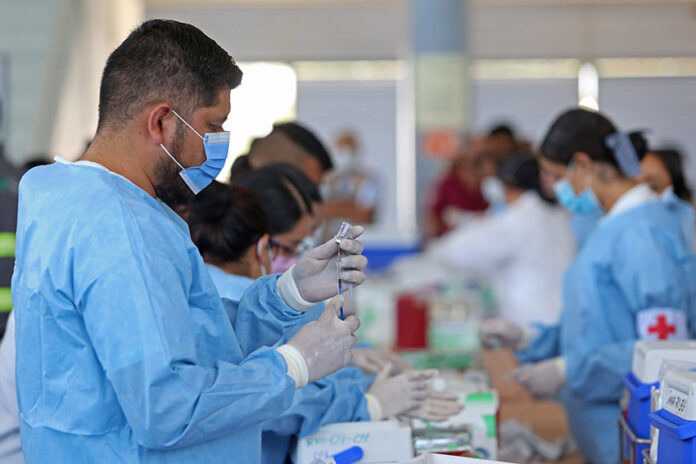Four Mexican pharmaceutical companies announced investment plans totaling more than 13 billion pesos at President Claudia Sheinbaum’s Thursday morning press conference.
Sheinbaum said at the start of the press conference that the four companies — Kener, Genbio, Neolpharma and Neolsym — had “decided to join Plan México,” the federal government’s ambitious economic initiative that seeks to spur investment and make Mexico more self-sufficient, among other objectives.
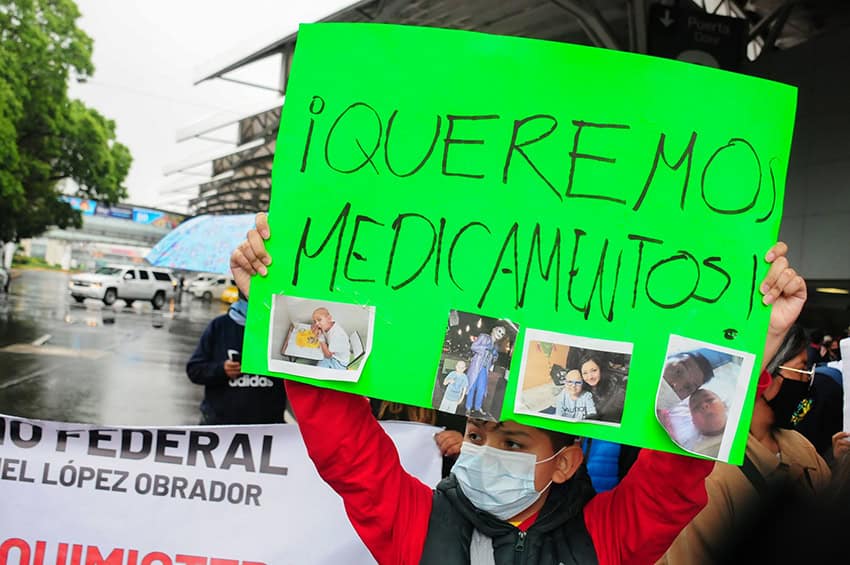
The investment announcements come at a time when Mexico continues to experience long-running shortages of various medications, including ones used in the treatment of cancer. The federal government is aiming to increase domestic production of medications and medical devices as part of its Plan México initiative.
“Mexico needs to increase its self-sufficiency … in everything to do with medicines,” Economy Minister Marcelo Ebrard said on Thursday morning.
The CEO of Laboratorios Kener, which makes a variety of medications including injectable drugs, was the first pharmaceutical executive to speak at Sheinbaum’s press conference.
“Presidenta, today we want to proudly announce an investment plan of more than 5.18 billion pesos [US $277.3 million],” Federico Prince Laris said.
He said that Kener would expand its plant in Toluca, México state, to “triple” its “installed capacity,” and noted that the project was expected to be finished by the first quarter of 2027.
Prince Laris explained that Kener specializes in “cardiology, hematology and anti-infective products” as well as “emergency medications known as ‘crash cart‘” drugs.
“In recent years, we’ve focused on the in-hospital injectables segment, which today represents the heart of our business,” he said.
Prince Laris said that the 5.18 billion peso investment in Kener’s plant will allow the company to achieve a range of objectives:
- Guarantee “national pharmaceutical sovereignty” in “several of our products.”
- Create a drug compounding center.
- Offer “comprehensive anesthesia services.”
- Create “new health registries for strategic medications for the country.”
Prince Laris said that the investment will also allow Kener to establish a “local production center for third generation CAR T cells,” which are used to treat cancer.
He said the center will be the first of its kind in Latin America and “will place Mexico at the forefront of personalized medicine.”
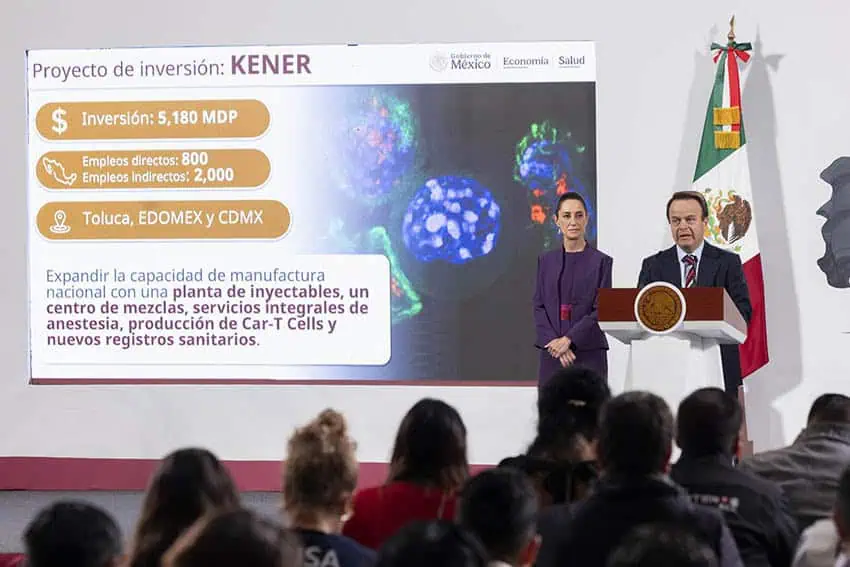
The CEO said that Kener’s projects will create around “800 specialized direct jobs” and approximately 2,000 indirect ones, “boosting the economic and social development of the country.”
“Presidenta, as you see, our plans are totally aligned with Plan México,” Prince Laris said.
“… Today, more than ever, pharmaceutical sovereignty is fundamental in order to reduce dependence on foreign countries for the supply of critical medications,” he said.
Genbio’s 4-billion-peso investment in a blood plasma plant
Genbio general director José Miguel Ramos Rodríguez noted that the company he leads has a “human plasma fractionation plant” in Chalco, México state. He highlighted that the plant is the first of its kind in Mexico and all of Latin America.
At the plant, Ramos noted, “we produce essential medicines such as albumin, immunoglobulin, and coagulation factors.”
These medicines are “needed by millions of patients” and are essential to survival for some people, as is “the case for hemophiliacs who need coagulation factors,” he said.
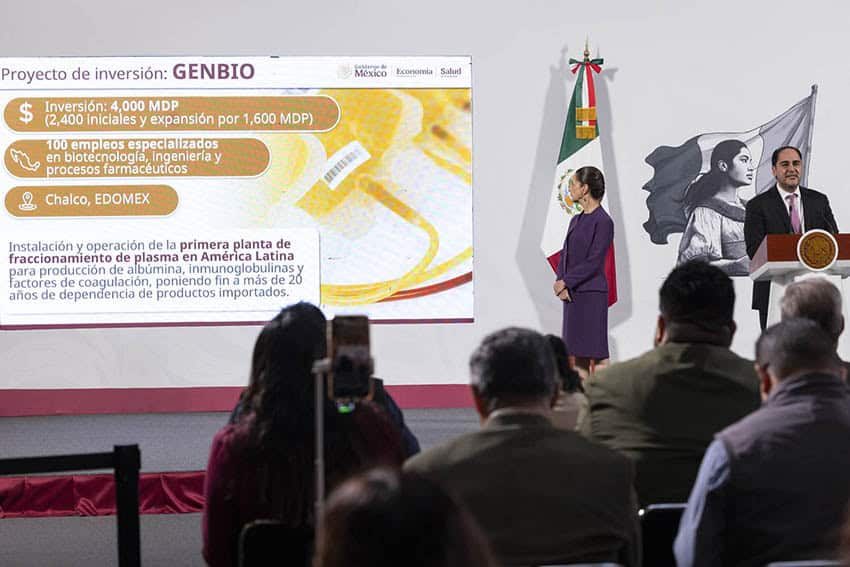
Ramos said that Genbio has already invested 2.4 billion pesos (US $128.6 million) in “infrastructure, technology and talent,” and announced that in conjunction with Grupo Vazol, a Mexican conglomerate, it will invest an additional 1.6 billion pesos in its México state plant, creating 100 new specialized jobs.
The additional investment “will allow us to increase our capacity to cover even more of the national market,” he said.
“… Presidenta, thank you very much for your support of the national industry and your firm commitment to the well-being of patients,” Ramos said.
Neolpharma to invest 6 billion pesos in 8 projects
Luz Astrea Ocampo Gutiérrez de Velasco, general director of Grupo Neolpharma, described the company she leads as “one of the most important pharmaceutical groups in the country.”
“We make everything from vitamins to high-specialty products,” she said.
Ocampo said that the company is planning to invest some 6 billion pesos (US $321.5 million) in coming years to carry out eight projects.
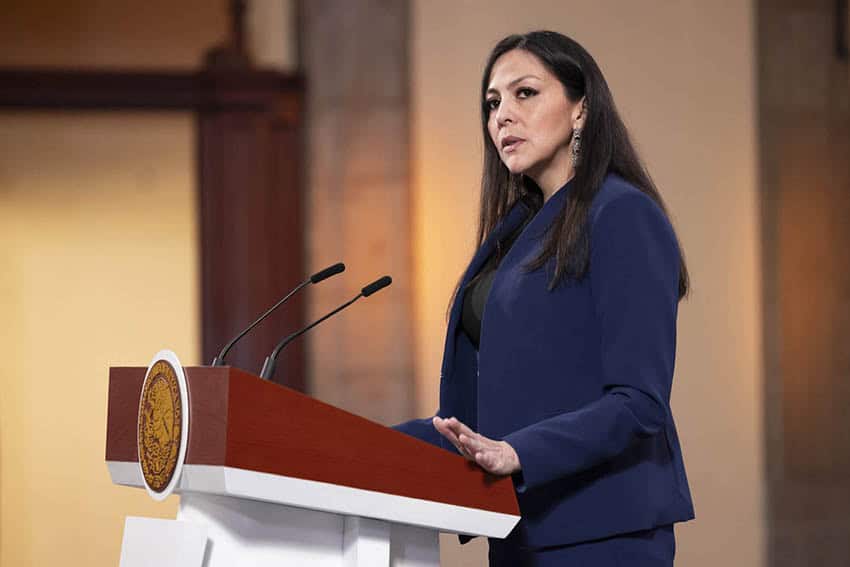
On Thursday morning, she focused on the 800-million-peso “Alpharma BioGenTec” project, explaining that it is “based on two pillars.”
“One has to do with infrastructure. The infrastructure will be for the production of biopharmaceuticals from microbial cells; we will also be filling biotechnological products, and we will also be making vaccines,” Ocampo said.
“The other arm of the project is [drug] development. As of today, in this first phase that we are talking about, we already have four bio-generic drug developments,” she said, adding that the company is collaborating with CICESE, a scientific investigation center in Baja California, and the Mexico City Ministry of Education, Science, Technology and Innovation.
“But not only that,” Ocampo said. “We believe in innovation. Mexico should not only receive innovation, but also create it. We are working with public universities on two projects: one, an innovative biotechnological product, and the other, a vaccine.
“Likewise, we are in talks with prestigious companies around the world that, in the coming years, will transfer biotechnology and vaccines to us.”
The Alpharma BioGenTec project is slated to create 110 direct and 310 indirect jobs, according to information presented by Ocampo.
Neolsym announces 500-million-peso investment
The executive chairman of Grupo Neolpharma, the parent company of Neolsym, announced an investment of 500 million pesos (US $26.8 million) “for the expansion of our raw materials production project” in Ecatepec, México state, and Jiutepec, Morelos.
Neolsym makes active pharmaceutical ingredients “that form part of the medications that Mexicans use,” Diego Antonio Gutiérrez de Velasco said.
The 500-million-peso investment is slated to create 120 direct jobs and 400 indirect ones.
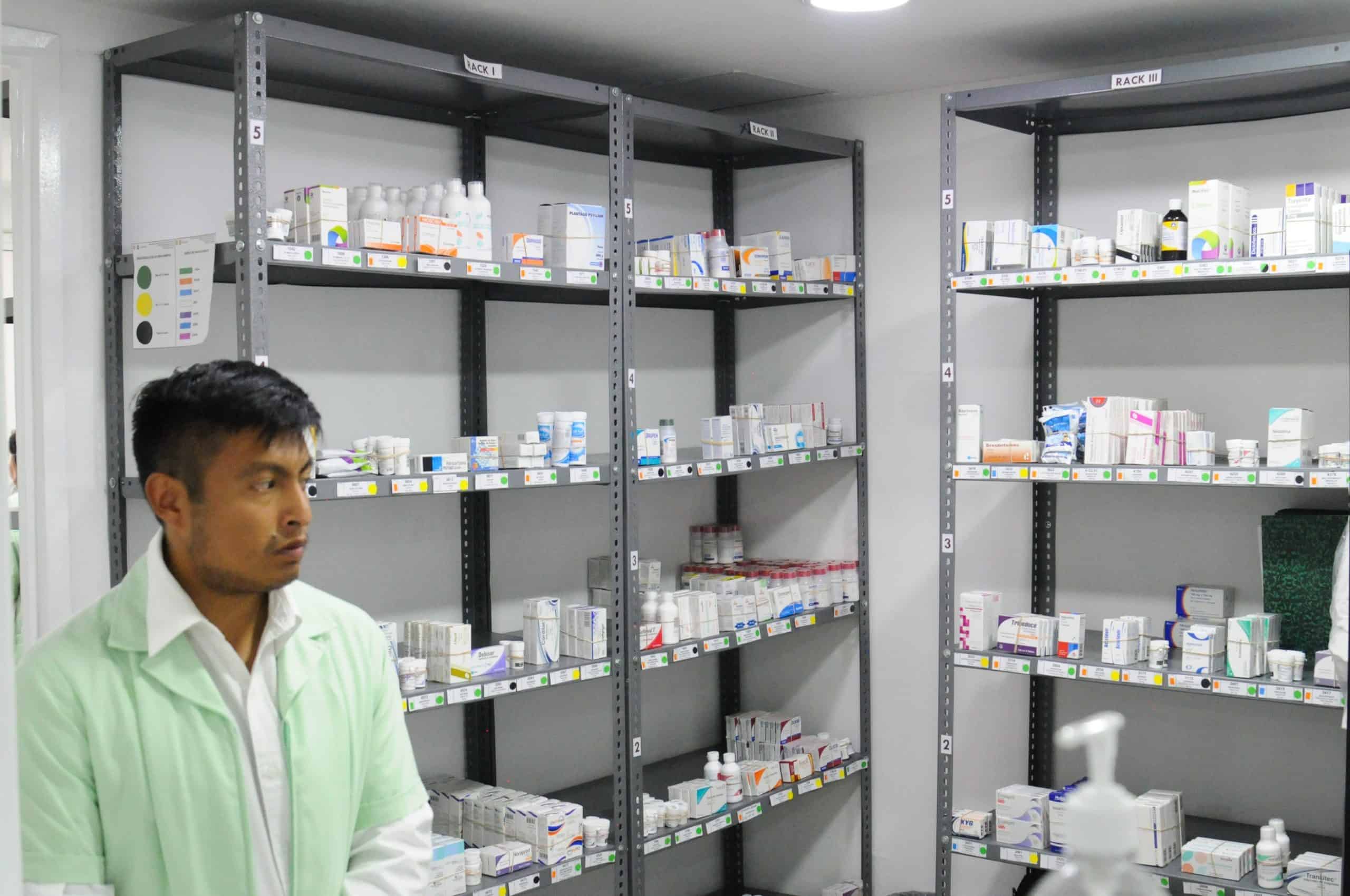
Gutiérrez said that currently around 90% of inputs for medications are imported, and declared that Neolsym, and its parent company Neolpharma, are committed to increasing domestic production “so that we can have greater control over the supply chain, lower costs, and ensure the availability of medicines.”
“We currently have a plant in the eastern part of México state, in Ecatepec, where we are investing in the development of molecules. And we are making a significant expansion in Jiutepec, Morelos, to launch a new plant with the capacity to produce high-potency drugs, hormonal drugs,” he said.
Foreign pharmaceutical investment coming as well, says health minister
The investment announced on Tuesday by Kener, Genbio, Neolpharma and Neolsym totals 13.28 billion pesos (US $712.1 billion). With the 2.4 billion pesos Genbio has already invested in its plasma plant, that amount increases to 15.68 billion pesos.
Health Minister David Kershenobich said that the four Mexican pharmaceutical companies are all supporting Plan México, and asserted that foreign pharmaceutical firms will as well.
He said that the government will soon announce investment plans of foreign pharmaceutical companies in Mexico.
“Instead of producing abroad,” such companies will “produce in Mexico,” Kershenobich said.
“… Investment in the [pharmaceutical] industry isn’t just national, but foreign as well, but with production in the country,” he said.
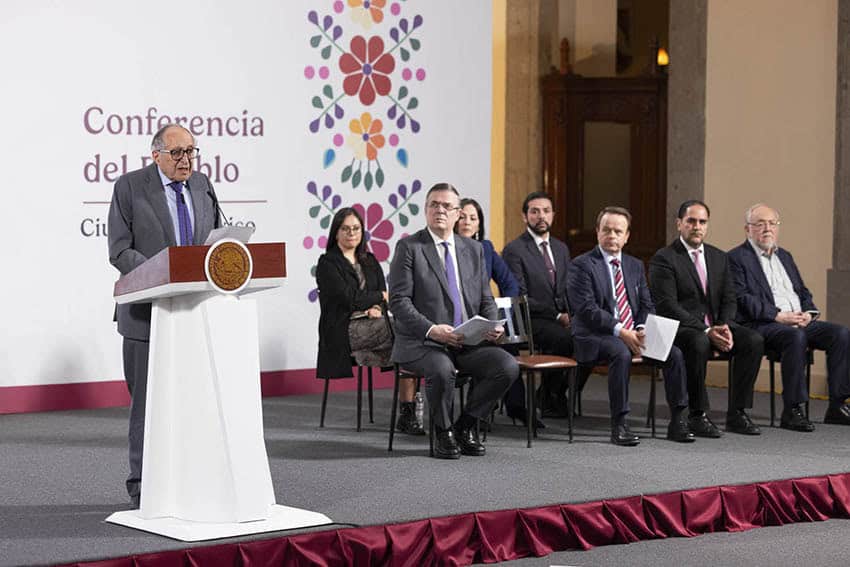
President Sheinbaum met with Narenda Modi at the G7 Summit in Canada last month and subsequently said that she spoke to the Indian prime minister “about the importance of strengthening economic ties between India and Mexico, particularly in some sectors like the pharmaceutical industry.”
India is a major producer and exporter of pharmaceuticals.
On Tuesday, Kershenobich said that investment in the pharmaceutical sector is not just aimed at achieving “health autonomy,” but also improving “social and health well-being” in Mexico.
“And also, why not say it, [there is] an economic benefit [as well],” he said.
Mexico News Daily
